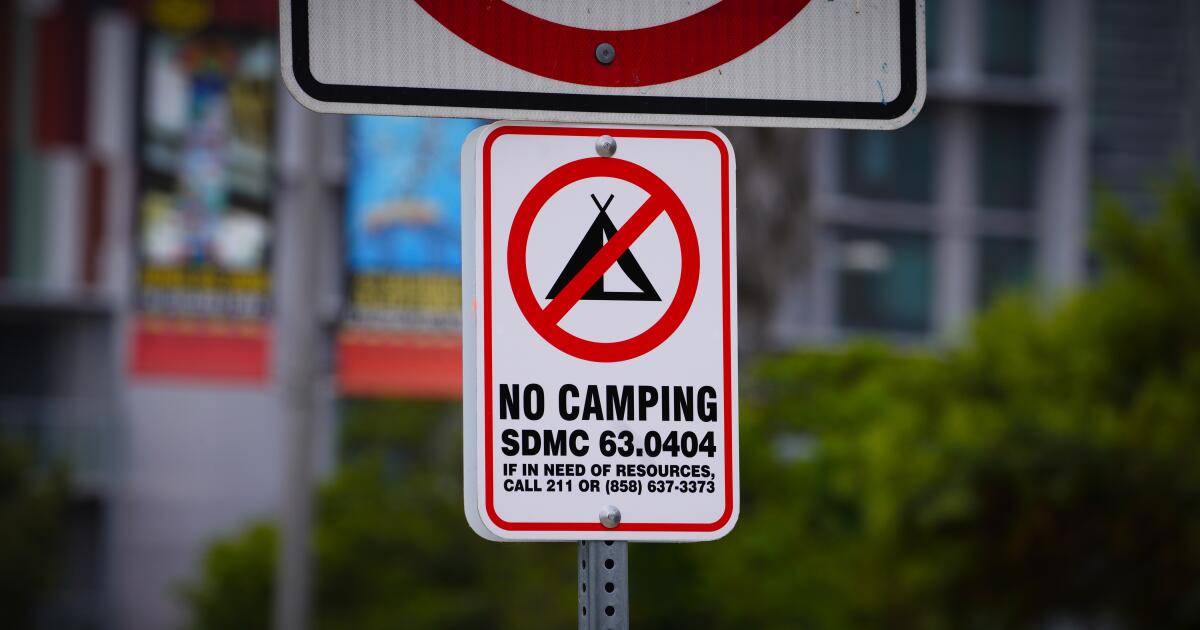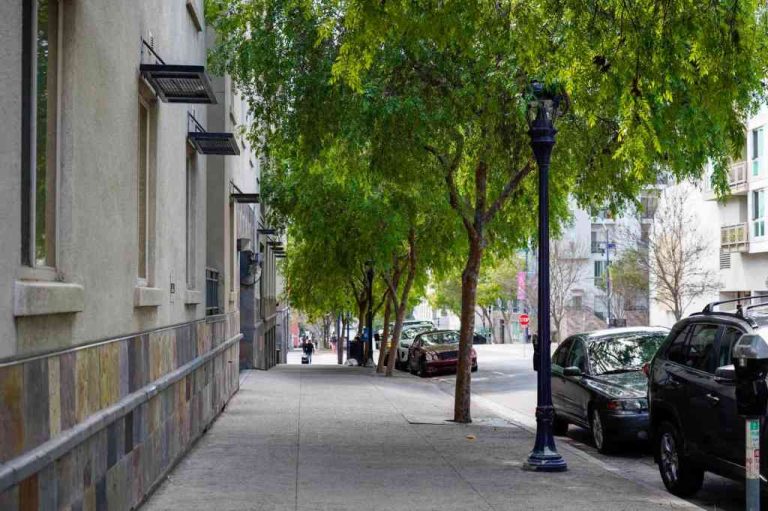

County officials are on the hunt for organizations willing to erect tiny homes for homeless people as elected leaders weigh cracking down on encampments.
Applications opened Wednesday for anyone with open land, including parking lots, willing to host some of the 100 or so available “Pallet Shelter cabins.”
While those structures could hold most of the unsheltered people counted earlier this year in unincorporated areas like Ramona and Lakeside, officials may have to overcome pushback from residents who’ve derailed previous tiny home proposals.
“We are in a housing crisis,” Barbara Jiménez, county Community Operations Officer, said in a statement, “and every new safe shelter made available can help someone move a step closer to securing permanent housing.”
The announcement comes soon after the county Board of Supervisors unanimously moved to follow the city of San Diego and explore creating its own camping ban.
Each cabin could sleep two and would feature storage space and charging outlets, officials said.
Once a local organization was approved, they’d receive the homes directly from Pallet Shelters, a company based in Washington. Grants would cover delivery and assembly, but individual groups would have to oversee the facilities and pay for additional expenses.
The Board of Supervisors is also set to consider at least two other homelessness-related proposals during their upcoming meeting Tuesday.
Chair Nora Vargas wants to hire a consultant to conduct a sweeping review of all contracts related to homeless services, flag gaps in the system and suggest improvements.
That process would likely take more than a year. The cost is unknown.
In addition, Supervisor Jim Desmond hopes to launch a pilot program to house people in North County who are already enrolled in substance abuse treatment.
He estimated that around 100 individuals in that area were both homeless and receiving outpatient care funded by the county. Each has been able to “achieve and maintain sobriety while overcoming significant barriers,” Desmond wrote. “Their lack of housing is a constant threat to their recovery.”
If the proposal’s approved, the county’s chief administrative officer would have about three months to find a way to pay for it. Desmond hopes the effort could eventually be expanded countywide.




